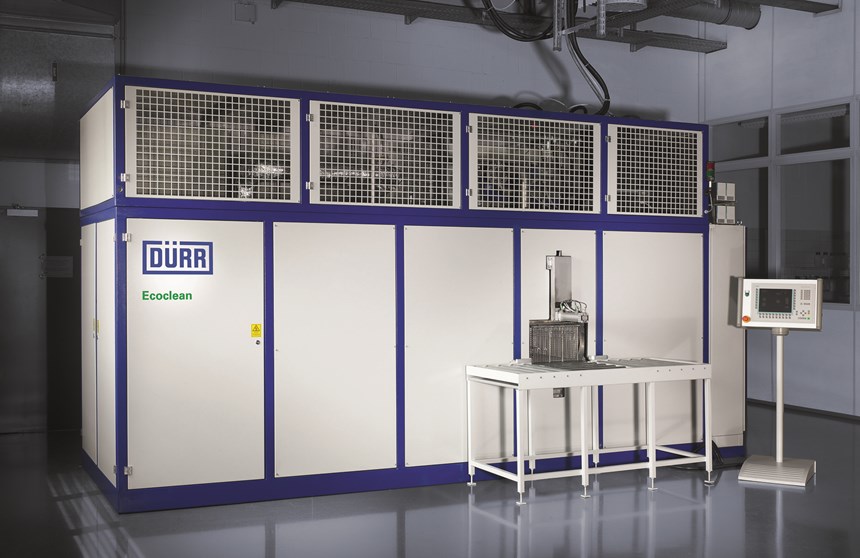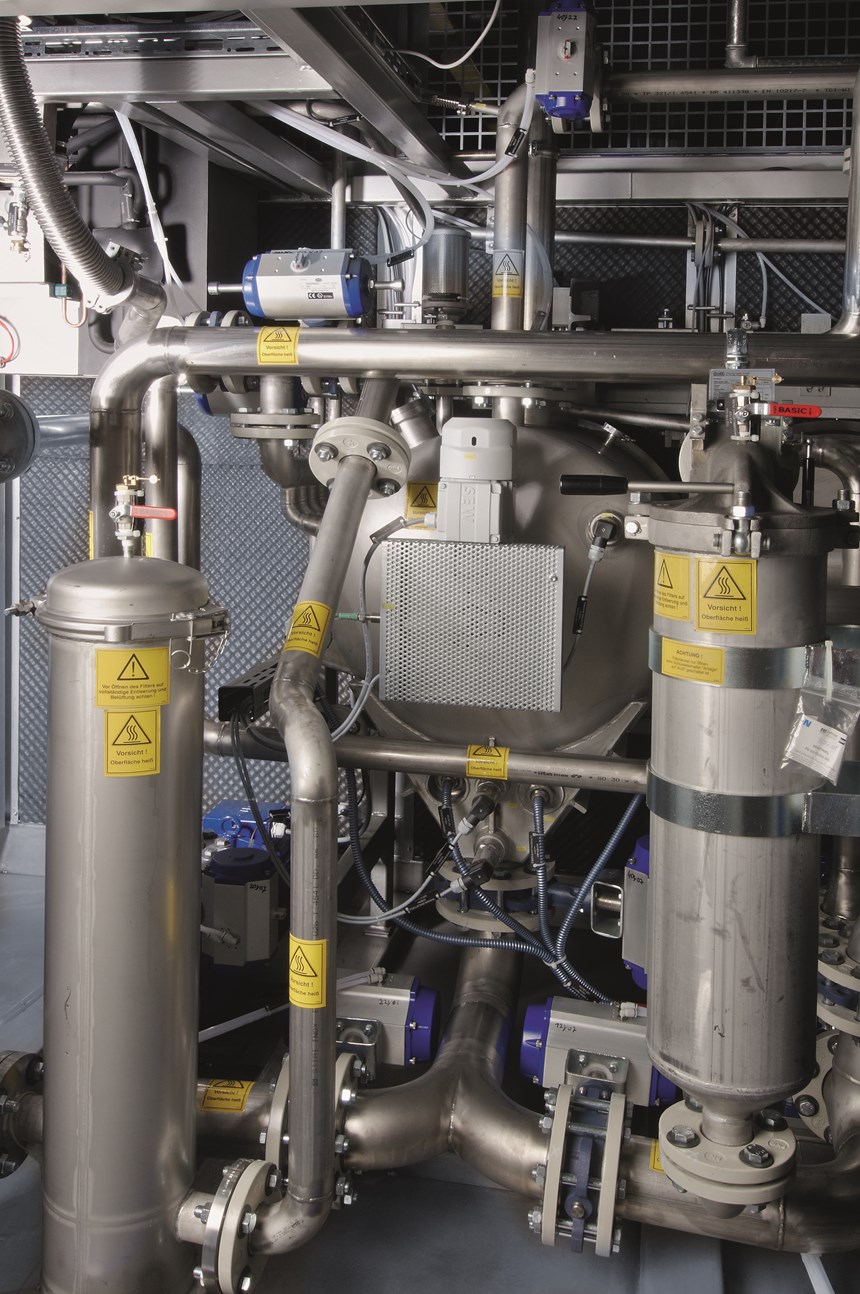New Cleaning Equipment Yields Improved Process
Although a forced change in a shop’s process may at first be unwelcomed, the change often yields better results than the process it took the place of by increasing efficiency and lowering costs.
Although a forced change in a shop’s process may at first be unwelcomed, the change often yields better results than the process it took the place of by increasing efficiency and lowering costs. This is what happened when the Moeller Group (Schrems, Austria) needed to replace its perchloroethylene-based cleaning method because of the VOC directive that came into effect in the EU last year, which forbids the use of perchloroethylene-based solvents. The company chose a new system that minimized maintenance requirements and lowered materials expenditure and maintenance costs by more than 60 percent.
While searching for a new system that would meet the VOC directive, Moeller management decided that the most important requirement was to ensure that the degreasing excellence achieved by the existing model would be retained. In addition, the new system should be capable of operating on a three-shift basis, 7 days a week. This meant that a high level of process reliability and minimal maintenance requirements would be essential.
The Universal 81C by Dürr Ecoclean was chosen to replace Moeller’s previous cleaning method. The shop, a supplier of systems and components for power distribution and building automation, wanted to demonstrate that the Universal 81C was able to fulfill such demanding requirements in terms of cleaning quality and consistency during constant use. Almost 5 tons of samples of dirty parts were cleaned at the Ecoclean Technical Center (Filderstadt, Germany), in the presence of a Moeller representative, over a 3-day period of continuous operation. The laboratory analysis that followed brought positive results.
"The test run showed that the system was 100 percent able to meet the demands made of it," says Erich Zach, production manager for Moeller. "In the end, the decision went in favor of the Universal 81C because it represents a reliable and cost-effective alternative, and it is very easy to operate."
The shop’s new machine sees 12 to 13 tons of steel and nonferrous heavy metal parts, some of which are galvanized, during daily production. Traces of the oil used in manufacturing adhere to the parts, therefore, they must be completely degreased before being passed to the next process. The machine uses non-halogenated hydrocarbons so that oil and grease are effectively removed.
The machine has an entirely enclosed working chamber for the cleaning and drying process. Parts are placed in baskets that are fed into the working chamber either automatically or manually. The system uses an injection flood washing system with rotation and swivel movements for both the cleaning and drying phases. No downtime or lengthy re-programming time is required for changing to parts of different shapes, sizes or materials, and operators can easily change programs using a user-friendly operator control panel.
The Universal 81C is almost completely emission free. There is a vacuum distillation process that continually treats the cleaning and degreasing solvents while the system is running. This reduces the amount of solvents required, as it doesn’t have to be re-supplied as frequently. Additionally, separated oil or grease from machining processes is discharged via a bypass distillation process.
The new machine has convinced Mr. Zach and his team that they chose the right cleaning process. "Although the process time is longer than it was previously, minimization of maintenance requirements together with much lower costs for supplying fresh solvents and disposing of used ones mean we will be able to cut auxiliary production material expenditure and maintenance costs by more than 60 percent."
Related Content
3 Common Filtration Questions Answered
Learn about the variety of filters for removing particulates from a cleaning fluid, how to determine cleaning fluid life and more.
Read MoreKyzen Solvents Provide Safe Parts Cleaning
The SLV901 and SLV803 solvents are formulated to maintain cleaning efficacy while providing a safe, environmentally friendly alternative to processes that use PFAS and HFCs.
Read MoreIndustrial Cleaning Shop Zeros In on Precision
This parts cleaning company is elevating its efforts to become a technical cleanliness expert, which presents an exciting, yet sometimes arduous, journey. The ongoing education of the team as well as significant investments in equipment and processes attribute to this shop’s success.
Read MoreSita’s CleanoSpector Measures Part Cleanliness
PMTS 2023: Handheld measuring device checks for cleanliness of parts to assure product quality as well as prior to follow-up processes.
Read MoreRead Next
Simple, Effective Parts Cleaning
After trying an array of parts cleaning methods over the years, this shop has implemented an environmentally friendly, relatively simple system to clean every part it produces.
Read MoreImproved Parts Cleaning Technology Leads To Environmental Compliance
This company's aqueous parts washer's limitations and design were causing problems, which led the shop to purchase a parts cleaning technology that eliminated many of the parts cleaning processes it was doing at the time.
Read MoreDo You Have Single Points of Failure?
Plans need to be in place before a catastrophic event occurs.
Read More

























